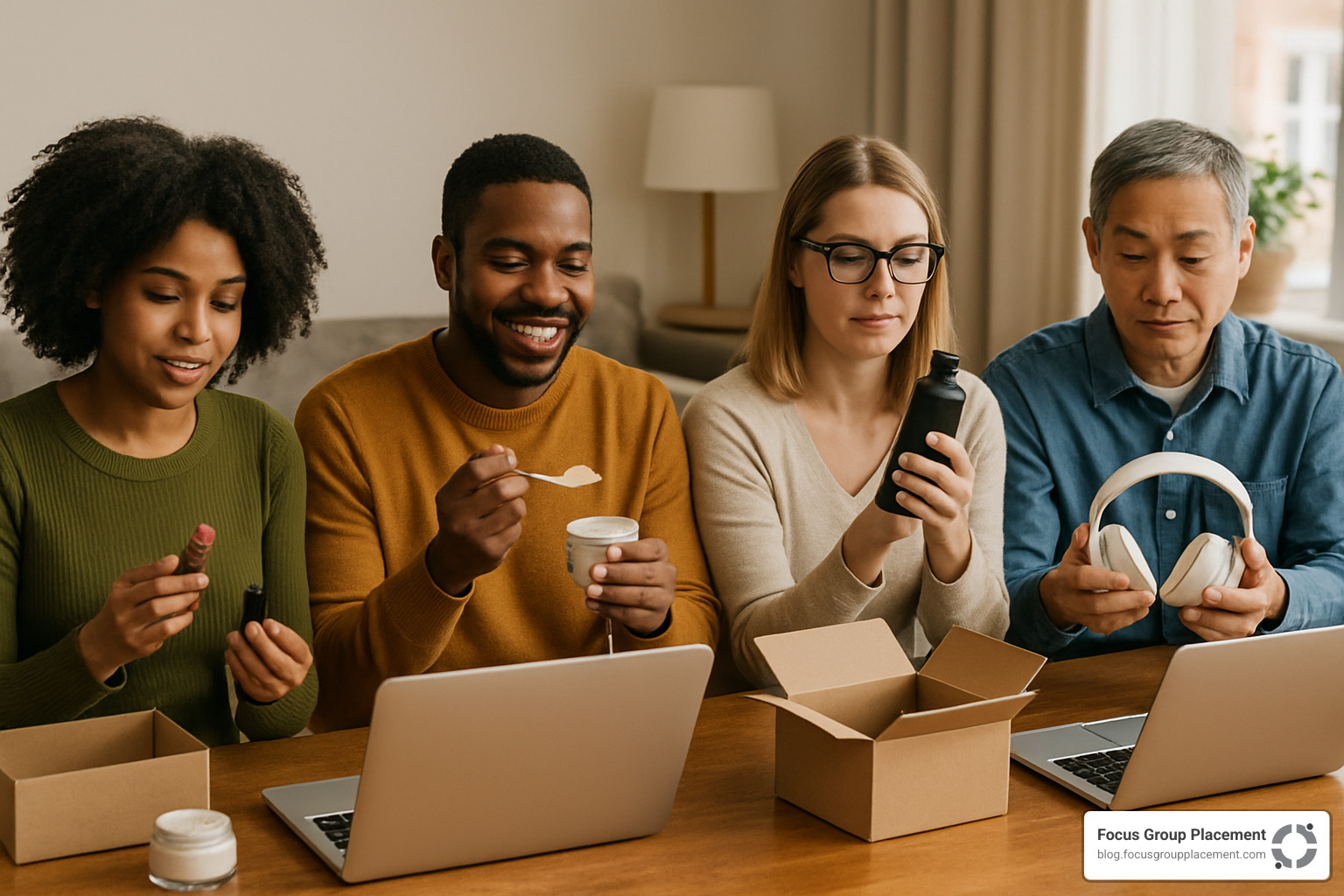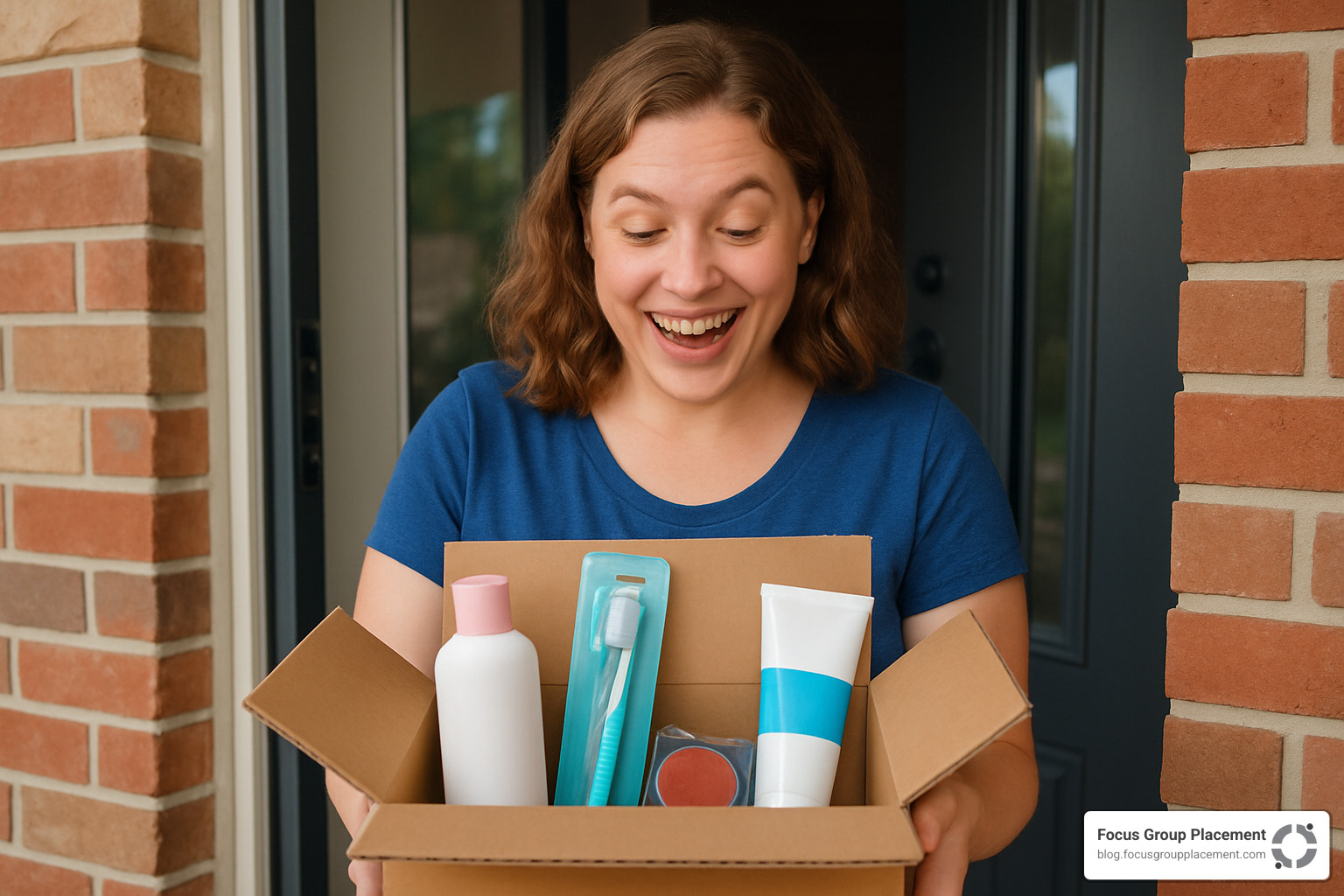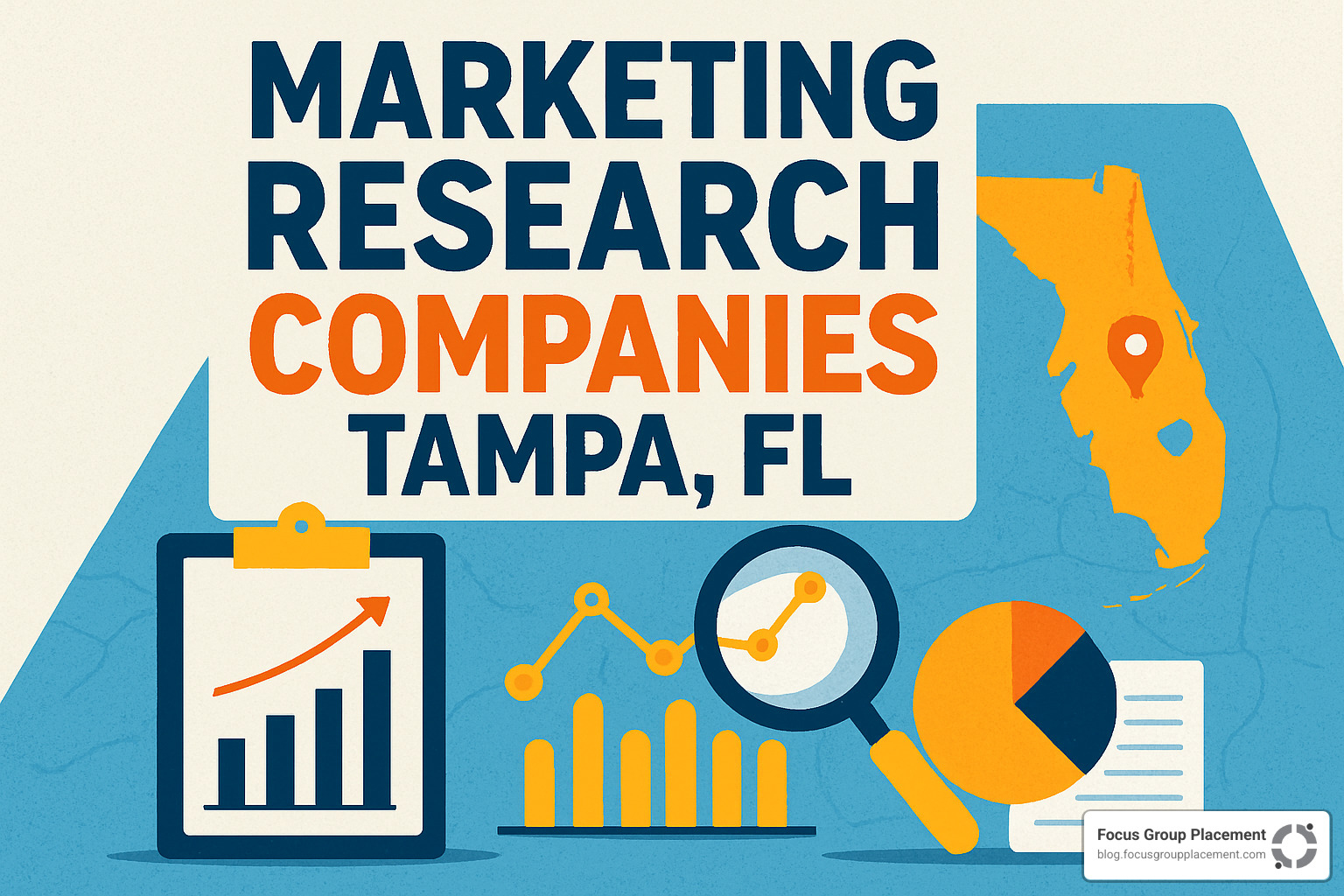Focus group kansas city opportunities are everywhere – and they’re one of the easiest ways to earn $50-$200 for sharing your opinions in just 2 hours. Here’s what you need to know:
Quick Facts:
- Pay Range: $50-$200 per session (some specialty studies pay up to $250)
- Time Commitment: 1-2 hours per session
- Group Size: 6-12 participants
- Types: Market research, legal mock trials, community engagement
- Format: In-person and online options available
Kansas City has a thriving focus group scene with established research facilities that have been connecting local residents with paid research opportunities for decades. Whether you’re testing new products, participating in mock jury trials, or sharing opinions on community issues, these sessions offer a legitimate way to earn extra income while contributing to important research.
The process is straightforward: companies need real feedback from everyday people before launching products, making legal arguments, or implementing policies. They’re willing to pay well for your time and honest opinions because your insights directly impact their decisions.
I’m Scott Brown, founder of Focus Group Placement, and I’ve been connecting market research companies with relevant participants since 2014. Through my experience building online survey communities and recruitment platforms, I’ve seen how focus group kansas city opportunities can provide meaningful extra income for busy professionals.

Focus Group Kansas City: How It Works
If you’ve never participated in a focus group kansas city session before, you might wonder what actually happens during those 2 hours that earns you $50-$200. The process is surprisingly straightforward and much more relaxed than you might expect.
Think of a focus group as a guided conversation with 6-12 people who share something in common – maybe you’re all parents, coffee drinkers, or Kansas City homeowners. A trained moderator leads the discussion, asking open-ended questions and making sure everyone gets a chance to share their thoughts.
What makes focus groups so valuable for companies is the group dynamic. Unlike filling out a survey alone at home, these sessions create energy where one person’s comment sparks ideas in others. You might hear someone describe their experience with a product and think, “Oh yes, that happened to me too, but I also noticed…” This back-and-forth creates insights that researchers can’t get any other way.
Scientific research on focus groups shows these sessions bridge the gap between cold statistics and real human experiences. Companies get the qualitative research they need to understand not just what people do, but why they do it.
What Is a Focus Group?
A focus group is essentially a structured conversation where you and other participants discuss a specific topic for about 2 hours. The moderator isn’t there to judge your answers or sell you anything – their job is to keep the conversation flowing and dig deeper when interesting points come up.
The questions are open-ended, meaning there are no right or wrong answers. You might be asked things like “How do you decide which restaurant to try?” or “What comes to mind when you see this advertisement?” The moderator wants to hear your genuine thoughts and experiences.
The real magic happens in the discussion dynamics. Maybe someone mentions they always check online reviews before buying something. That might remind you of a bad experience you had, which leads another participant to share their strategy for avoiding scams. Before you know it, the group has uncovered valuable insights about consumer behavior that no multiple-choice survey could capture.
The data insights companies gain from these conversations help them make better products, create more effective marketing, and solve real problems people face.
Typical Focus Group Kansas City Setup
Most focus group kansas city sessions happen in comfortable, professional facilities designed specifically for research. When you arrive, you’ll check in at a reception area that feels more like a nice office than a sterile lab.
The discussion room itself usually has a large table where everyone sits in a circle or U-shape. This setup encourages eye contact and natural conversation. You’ll find name plates, notepads, pens, and usually some snacks and drinks waiting for you.
What you might not realize is that there are often observation rooms behind one-way mirrors where the company’s team watches the session. Don’t let this make you nervous – they’re not judging you personally. They’re there to hear what real people think about their products or services.
Everything is recorded with audio and video equipment, but this is just so researchers can review the conversation later and catch details they might have missed. The recordings are kept confidential and used only for research purposes.
The incentives are straightforward – you’ll typically receive your payment right after the session ends, either in cash, by check, or through a digital gift card. It’s that simple: show up, share your honest opinions, and walk away with extra money in your pocket.
Types of Focus Groups Available in Kansas City
Kansas City’s thriving business community and engaged residents create a perfect storm for diverse focus group opportunities. The metro area – stretching across Blue Springs, Independence, Leawood, Lee’s Summit, Lenexa, Mission, Olathe, Overland Park, Prairie Village, and Shawnee Mission – hosts hundreds of research sessions throughout the year.
What makes Kansas City special is the variety. You’re not limited to just one type of study. One week you might be taste-testing barbecue sauce, and the next you could be serving on a mock jury for a high-stakes legal case.

Market Research & Product Testing
The bread and butter of focus group kansas city opportunities comes from companies wanting to understand what real people think about their products. From food and beverage companies testing new flavors to technology firms evaluating user interfaces, these sessions keep the local research scene buzzing.
Product testing sessions are often the most fun. You might find yourself sampling new restaurant menu items, trying out the latest household gadgets, or testing mobile apps before they hit the market. The best part? You usually get to keep the products you test, plus your cash payment.
Consumer panels dig deeper into your shopping habits and lifestyle preferences. These discussions help companies understand what drives Kansas City residents to choose one brand over another. Do you shop based on price, quality, or convenience? Your answers shape marketing strategies and product development.
Usability labs focus specifically on how people interact with websites, apps, and digital products. You’ll be asked to complete tasks while researchers observe your behavior. It’s fascinating to see how your feedback directly improves the user experience for thousands of future customers.
Legal Mock Trials
Kansas City has developed a particularly strong reputation for legal research, with local facilities offering sophisticated mock trial services. These sessions pay some of the highest rates in the focus group world – sometimes reaching $250 for complex cases.
Jury simulations put you in the shoes of a real juror. You’ll listen to opening statements, review evidence, and deliberate with other participants just like in an actual courtroom. Attorneys use your feedback to refine their arguments and identify potential weaknesses before facing a real jury.
The process is remarkably similar to actual jury duty, but with better pay and more comfortable surroundings. You’ll hear case presentations from both sides, examine evidence, and discuss your impressions with fellow mock jurors. Your honest reactions help lawyers understand how their arguments will resonate with everyday people.
Legal focus groups maintain carefully vetted participant pools to ensure mock juries reflect the demographics of actual Kansas City jury pools. This attention to detail makes the feedback incredibly valuable for attorney preparation and trial strategy.
Community organizations in Kansas City have been facilitating public dialogue for decades, using focus group methods to tackle important community issues. These sessions combine traditional research techniques with genuine civic engagement.
Public policy discussions cover topics that directly affect your daily life – from transportation planning to education funding. Your input helps shape decisions about how tax dollars are spent and what projects get priority in your neighborhood.
Civic planning sessions often focus on specific areas of the city, gathering input from residents about their priorities and concerns. Whether it’s discussing new development projects or evaluating public services, your voice helps guide city planning decisions.
Nonprofit forums use focus group formats to understand community needs and evaluate program effectiveness. These organizations want to ensure their efforts align with what Kansas City residents actually want and need, making your participation directly impactful for your community.
The hybrid and online options have expanded dramatically in recent years, giving you more flexibility to participate regardless of your schedule or location within the metro area.
How to Get Selected and Paid for KC Focus Groups
Landing your first focus group kansas city opportunity starts with understanding what researchers are actually looking for. Every study has specific requirements – maybe they need working mothers between 30-45 who drive SUVs, or college students who order food delivery at least twice a week. The more specific the requirements, the better your chances if you’re a perfect match.
The secret to getting selected regularly is simple: cast a wide net. Register with multiple research facilities around Kansas City and keep your profiles detailed and current. When a study needs “Kansas City residents who love trying new restaurants,” you want to be the first person they think of.
Research companies send out screening surveys to find the right participants for each study. These surveys ask detailed questions about your demographics, lifestyle, and opinions. The key is being completely honest – researchers have ways to spot inconsistencies, and getting caught in even a small lie can blacklist you permanently.
Most focus group kansas city sessions pay between $50-$200, depending on how long the study lasts and how specialized the topic is. A quick 90-minute discussion about breakfast cereals might pay $75, while a detailed 3-hour session about financial planning could pay $200 or more. Legal mock trials and medical studies often hit the higher end of the range, sometimes reaching $250.
Here’s something most people don’t know: research companies always invite more people than they need. They might invite 12 people for an 8-person group because they expect a few no-shows. This means showing up reliably gives you a huge advantage for future invitations.
For step-by-step guidance on maximizing your opportunities, check out our comprehensive guide on How to Participate in Paid Focus Groups. We also have detailed information about Online Focus Groups That Pay if you prefer participating from home.
Eligibility & Screening Tips
The screening process is where most people either win or lose their spot. Your first rule: always tell the truth. Researchers aren’t trying to trick you – they genuinely need specific types of people for each study. If they need parents and you don’t have kids, being honest saves everyone time and keeps you eligible for future studies that actually fit.
Fill out your registration profiles completely. Don’t just answer the required questions – include details about your job, hobbies, shopping habits, and interests. The more information you provide, the better researchers can match you to relevant studies. Think of it as creating a detailed picture of who you are.
Respond quickly to screening invitations. Many studies fill up within 24-48 hours of sending out invitations. Set up email notifications so you see new opportunities immediately, and aim to respond the same day you receive an invitation.
Be realistic about your availability from the start. If you can only participate on weekends or after 6 PM, say so upfront. It’s much better to be honest about your schedule than to accept an invitation you can’t fulfill. No-shows hurt your reputation with research companies.
Pay Rates in Kansas City
Payment happens immediately after most focus groups – you’ll walk out with cash in hand or receive a digital gift card before leaving the facility. In-person studies typically pay in cash, while online focus groups usually use electronic payments or gift cards to popular retailers.
The $50-$200 range covers most standard market research, but the actual amount depends on several factors. Longer sessions pay more, specialized topics pay more, and hard-to-find participants command premium rates. A busy executive’s time costs more than a college student’s, and the payments reflect that reality.
Legal mock trials are the highest-paying opportunities in Kansas City, often reaching $150-$250 per session. These studies require longer time commitments – sometimes 4-6 hours – and more detailed feedback. You’re essentially serving as a mock juror, so the responsibility is greater.
Some facilities offer referral bonuses if you recommend friends who get selected for studies. Building good relationships with local research companies can also lead to invitations for premium studies that pay above the standard rates.

Online vs In-Person Opportunities
The pandemic changed everything about focus groups, and honestly, it was mostly for the better. Online focus groups now make up about half of all opportunities, giving you way more flexibility to participate around your schedule.
Virtual sessions work surprisingly well. You join a video call from your home or office, chat with other participants just like you would in person, and still get paid the same rates. The technology has gotten so good that many people actually prefer online sessions – no commute, no parking hassles, and you can participate in your comfortable clothes.

In-person facilities are still thriving in Kansas City, especially for studies that involve physical products or complex discussions that benefit from face-to-face interaction. These facilities are typically located in convenient areas with plenty of parking and easy highway access.
The flexibility of online participation has opened up focus group kansas city opportunities to people who previously couldn’t participate. Parents with young children, people with mobility challenges, and anyone with unpredictable work schedules can now join studies that fit their lives. You can literally participate during your lunch break without leaving your office.
Making the Most of Your Session
Success in focus groups comes down to being an engaged, thoughtful participant who contributes meaningfully to the discussion while respecting other participants’ perspectives. The goal is to provide honest, detailed feedback that helps researchers understand your thoughts and motivations.
Arrival etiquette for in-person sessions is straightforward: arrive 10-15 minutes early, bring a valid ID, and be prepared to sign non-disclosure agreements and consent forms. Most facilities provide a brief orientation before the session begins.
Building rapport with other participants and the moderator creates a more comfortable environment for everyone. Focus groups work best when participants feel relaxed and open to sharing their genuine opinions.
Note-taking during the session isn’t necessary – that’s the researchers’ job. Your role is to participate actively in the conversation, listen to others’ perspectives, and share your own thoughts and experiences.
What to Expect on the Day
The check-in process typically involves verifying your identity, confirming your eligibility for the specific study, and completing any final paperwork. You’ll receive information about the session format and ground rules.
Icebreakers help participants get comfortable with each other and the moderator. These might involve simple introductions, sharing something about your background, or discussing a light topic related to the main research focus.
The guided discussion follows a structured format, moving from general topics to more specific questions. Moderators use probes and follow-up questions to dig deeper into interesting responses and ensure all participants have opportunities to contribute.
Participant Best Practices
Active listening is just as important as speaking. Pay attention to what others are saying and build on their ideas when appropriate. The best focus group discussions feel like natural conversations where participants learn from each other.
Balanced speaking means contributing regularly without dominating the conversation. Share your thoughts and experiences, but also give others space to express their views. Good moderators will manage this balance, but self-awareness helps create better dynamics.
Respectful debate can improve the discussion when participants disagree. It’s okay to have different opinions – in fact, that diversity of perspectives is exactly what researchers want to capture. Express disagreement politely and explain your reasoning rather than simply contradicting others.
How Businesses Use the Insights
The feedback you provide directly influences business decisions across multiple industries. Product development teams use focus group insights to refine features, improve usability, and identify potential problems before launch.
Advertising agencies test creative concepts, messaging strategies, and media preferences to ensure their campaigns resonate with target audiences. Your reactions to advertisements help shape the marketing messages you’ll see in the future.
Legal teams use mock trial feedback to strengthen their arguments, anticipate opposing counsel’s strategies, and better understand how juries might respond to different evidence and witness testimony.
City planners and policymakers incorporate community focus group feedback into decisions about infrastructure, services, and regulations that affect daily life in Kansas City.

Frequently Asked Questions about Focus Group Kansas City
How often can I participate in a KC focus group?
Here’s the thing about focus group kansas city participation – most research companies want to keep things fresh. You’ll typically need to wait about 6 months between studies from the same company, though each organization sets its own rules.
This waiting period isn’t personal – it’s actually a good thing. Companies want genuine, spontaneous reactions, not responses from people who’ve become “professional participants.” Think of it like this: they want your authentic first impression, not a rehearsed performance.
But here’s a smart strategy: register with multiple facilities around Kansas City. While you’re waiting out the 6-month period with one company, you might be perfect for a study at another facility. Each company maintains its own participant database and policies.
Some specialized studies play by different rules. Legal mock trials and medical research often need very specific people – maybe someone with a particular health condition or professional background. If you’re a perfect match for these niche studies, you might get invited more frequently.
Do I have to pay taxes on my focus-group income?
The short answer is yes – the IRS considers focus group payments taxable income. But don’t panic! For most people, we’re talking about relatively small amounts that won’t dramatically change your tax situation.
Here’s what you need to know: if you earn $600 or more from a single research company in one calendar year, they’ll send you a 1099 form. That’s when the paperwork gets official. Most individual sessions pay $50-$200, so you’d need to participate several times with the same company to hit that threshold.
The payments get classified as miscellaneous income, not regular wages. This means no taxes are automatically taken out of your payment – you get the full amount upfront. If you become a frequent participant, consider setting aside a small portion of your earnings for tax time.
Keep simple records of your participation. A basic spreadsheet with dates, companies, and payment amounts will make tax season much easier if you need to report this income.
What happens if I don’t qualify after screening?
Getting screened out is completely normal – and I mean completely normal. Don’t take it personally when you don’t qualify for a study. Research companies need incredibly specific participant profiles, and most people won’t match most studies.
Think about it this way: a company testing a new baby formula needs parents with infants under 12 months. If your kids are teenagers, you’re not going to qualify – and that’s perfectly fine. It’s not about you; it’s about the research requirements.
Stay in their database even after multiple rejections. Your profile might be exactly what they need for next month’s study. Research companies regularly review their participant pools when new projects come in, and today’s “no” could be tomorrow’s “perfect match.”
Use rejections as a chance to improve your profile. If you consistently don’t qualify for studies, double-check that your information is complete and accurate. Sometimes a small detail you forgot to mention could be the key to qualifying for future opportunities.
The beauty of focus group kansas city opportunities is their variety. One week they might need college students, the next week working parents, and the following week retirees. Your turn will come – patience is part of the process.
Conclusion
The world of focus group kansas city opportunities has opened up incredible possibilities for earning extra income while making your voice heard in meaningful ways. From testing new products to shaping community policies, your opinions genuinely matter to businesses and organizations throughout the metro area.
What makes focus groups so appealing isn’t just the $50-$200 you can earn in a couple of hours. It’s the satisfaction of knowing that your feedback might influence the next smartphone app you use, the taste of your favorite restaurant’s new menu item, or even how your neighborhood develops over the next few years.
The Kansas City market research scene is thriving, with both traditional in-person facilities and modern online platforms offering flexible ways to participate. Whether you prefer the energy of face-to-face discussions or the convenience of joining from home, there’s a format that fits your lifestyle.
At Focus Group Placement, we’ve seen how rewarding market research participation can be for people from all backgrounds. Since 2014, we’ve been connecting everyday folks with legitimate research opportunities that value their time and perspectives. Our platform takes the guesswork out of finding studies that match your profile and interests.
Your unique perspective as a Kansas City resident brings value to every session you join. Companies need authentic feedback from real people living real lives, not rehearsed responses from professional participants. Whether you’re a busy parent, a working professional, or a retiree with time to share, researchers want to hear what you have to say.
The process really is straightforward – register with local facilities, complete screening surveys honestly, show up prepared to share your thoughts, and walk away with cash in hand. Many participants find the experience so enjoyable that they look forward to their next invitation.
Ready to turn your opinions into extra income? Explore our current Kansas City listings and find how easy it is to get started. Your community needs voices like yours to help shape the products, services, and policies that affect everyone’s daily lives.
Join the thousands of Kansas City residents who’ve already finded that sharing their opinions can be both profitable and personally rewarding. The next focus group could be just a click away.

























































